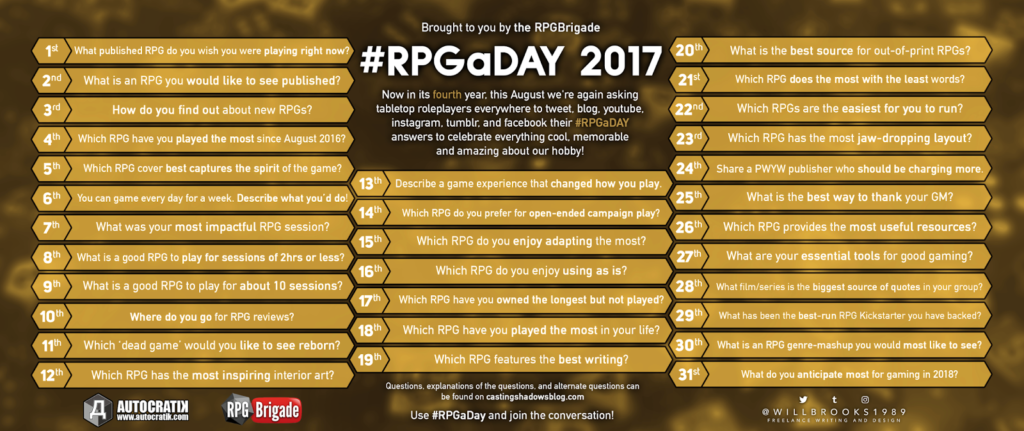This post is a part of the #RPGaDAY series for 2017 by David F. Chapman and RPGBrigade. For more information, see this post at AUTOCRATIK. I'm modifying per suggestions from S. John Ross as well as applying my own interpretations. Comment with your answers or links to your own posts!
Day 16 - Which RPG do you enjoy using as-is?
This question gives me as much pause as the last one did, and for the same reason: I'm not particularly in the habit of hacking up games. So with that in mind, it sort of becomes a question of which RPG I enjoy, full stop, which is, you know...quite a long list. But in pondering the question as which RPG do I enjoy particularly for the rules-as-written, the one that comes to the forefront for me is Headspace by Mark Richardson. I love this game. It's billed as cyberpunk, but that doesn't highlight what I love about it. The central conceit, that party members are all connected to a shared consciousness (the titular "headspace"), and the fact that the rules are all built around that concept, make this an extremely easy game to run, play, and have fun with. The idea and mechanics of the shared consciousness addresses so many stumbling blocks that may crop up in other RPGs. Splitting the party is a non-issue as far as needing any special running techniques; all party members are in continuous, instantaneous, and rather intimate contact. Niche protection? Forget about it; the party members all share skills. That same state of affairs similarly solves the "nobody wants to play X" problem. Even character death is mitigated as a player nuisance because the "ghost" lives on in the shared consciousness. Like many other Powered-by-the-Apocalypse games, Headspace character generation forges intraparty relationships and so forth, but these relationships are very mechanically important during play -- moreso, I think, than in many other PbtA titles. Moreover, character generation is also party generation, which is a trait shared by many PbtA games, but still something I enjoy greatly about Headspace, and it's easy to make it background, session zero, or session one stuff. I believe it's also less troublesome to swap players in and out over the course of a campaign, though I admit I have never tried this; I just appreciate it in theory. In short, the game has all the strengths and gameplay I might get out of any of a large number of PbtA games plus a host of cool new tech that makes it super smooth to run. If you haven't yet had the pleasure, I highly recommend checking it out!

